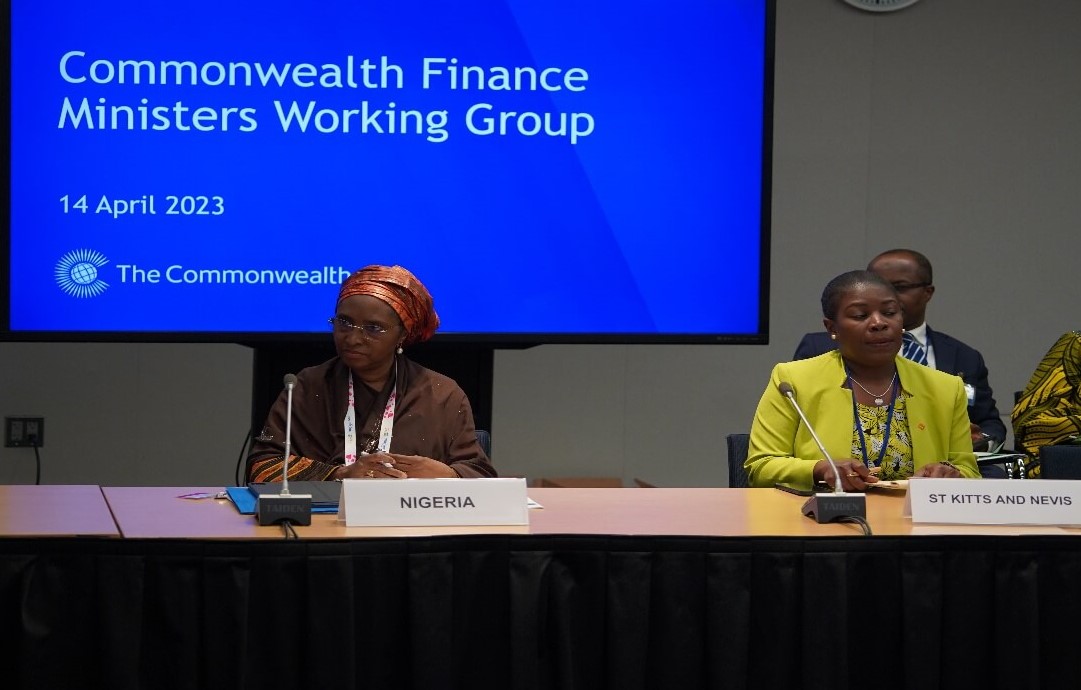Commonwealth finance ministers have agreed for India to be the chair and Nigeria to be the deputy chair of the Finance Ministers Working Group for a Commonwealth Call for Reform of the Global Financial Architecture.
The agreement by the ministers from the various Commonwealth countries followed a call for systemic reform of the global financial architecture to enhance access to development financing for vulnerable countries.
According to a press statement sent to Prime Progress’ managing editor, the call occurred at the Commonwealth Finance Ministers High-Level Working Group Meeting in Washington, United States, on 14 April 2023.
At the meeting held on the margins of the 2023 World Bank Group and International Monetary Fund (IMF) Spring Meetings, the finance ministers discussed national fiscal policies, measures for financial sustainability, eligibility criteria for development finance and potential reforms required for a more equitable financial architecture.
The ministers said in their call that increased funding and the realities of vulnerability must be the top priority when allocating support to help vulnerable countries invest in resilience and achieve sustainable development.
“The need for ambitious, systemic change has never been greater. As the Commonwealth family, representing one-third of humanity, we are joining forces to call for reform of the global financial system to deliver an architecture that is multi-dimensional, fit-for-purpose and adaptive to emerging and existing challenges, with a view to building long-term resilience and achieving sustainable development,” said the Commonwealth Secretary-General, Patricia Scotland KC, in her opening remarks.
“Our world faces overlapping, interlinked and accelerating economic, security and environmental challenges. They entwine and accelerate to amplify existing inequalities, threatening stability, resilience and development prospects. To create meaningful change, the global financial system must take into account the realities of vulnerability when allocating support to developing countries.”
During his keynote address, the Prime Minister of Barbados, Hon Mia Mottley, said the call for change became necessary because the old order was not sustainable.
“One sure thing is that the status quo is not working for us. The continued discriminatory treatment between the global north and the global south really cannot continue, especially in a poly-crisis … The time is now for action and to ensure that the global financial system is fit for purpose,” he said.
Meanwhile, the ministers also discussed the need to influence the global financial architecture, which is still affected by “unfit” fiscal rules and conditions that make it hard to meet the needs of the current global economic landscape and overlapping challenges.
They said current eligibility criteria for accessing concessional finance are based on sole metrics of gross national income (GNI) per capita, disregarding national vulnerabilities; hence the need for new governing conditions for access to international development finance.
To this end, a Commonwealth Secretariat paper entitled ‘Fiscal Policy Options for Resilient and Sustainable Development’ considers the multi-dimensional vulnerabilities and socio-economic development challenges countries face and recommends several fiscal and policy reforms to facilitate more resilient and sustainable development outcomes.
“Collaboration among Commonwealth countries would enable knowledge exchange and facilitate data sharing, research and toolkits, including use of Environmental, Social and Governance (ESG) practices to monitor and accelerate progress on sustainable investing toward enabling an environmentally responsible economy and society, together with protecting our planet,” said Ruth Kattumuri, Senior Director of the Commonwealth Secretariat’s Economic, Youth and Sustainable Development Directorate.






